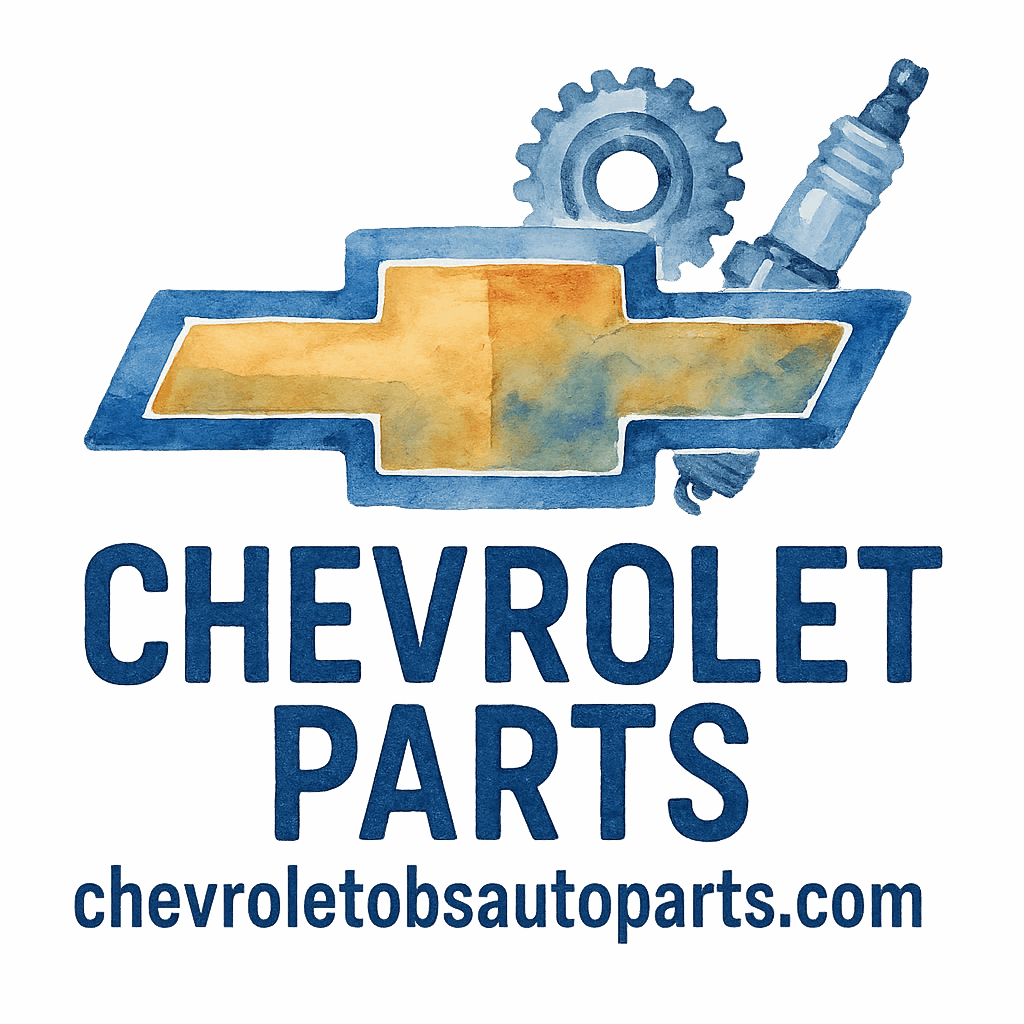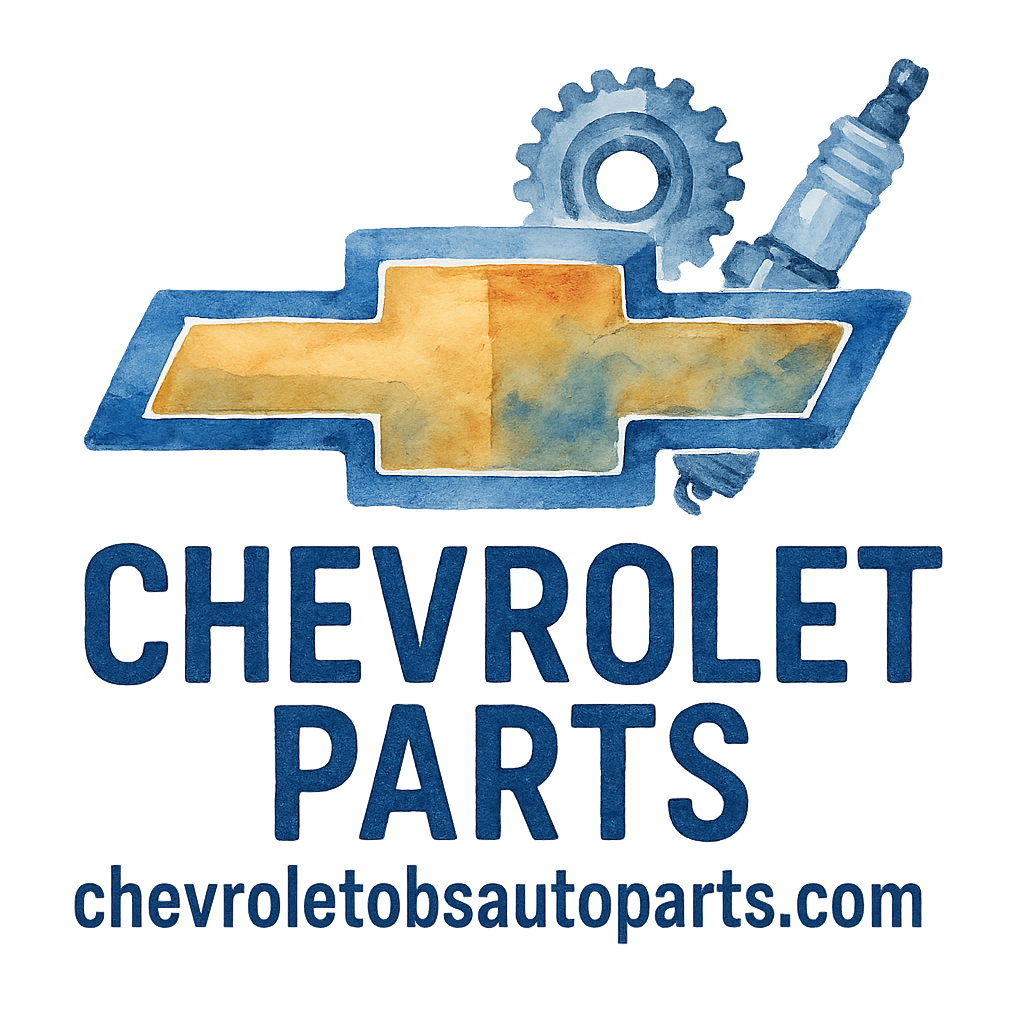When your Chevrolet engine acts up, you feel it — that rough idle, lagging acceleration, or weird knocking sound that wasn’t there yesterday. But before you panic and assume the worst, here’s some good news: many common engine issues are caused by a few predictable, replaceable parts. Let’s walk through the top 10 Chevrolet parts you can swap out to fix those nagging problems and keep your ride running like new.
Introduction to Chevrolet Engine Issues
Every car develops issues over time. Whether you’re cruising in a Silverado or revving a Camaro, engine troubles are bound to show up. But here’s the kicker — it’s often just one part out of sync. Catch it early, replace it with high-quality Chevrolet parts, and your engine could be good as gold again.
Why Choosing the Right Chevrolet Parts Matters
Not all parts are created equal. Using cheap or mismatched components can do more harm than good. Sticking to trusted, compatible Chevrolet parts ensures your engine gets the exact specs it needs — improving performance, fuel economy, and long-term durability.
Check out this buying guide to help you avoid common mistakes when shopping for engine parts.

1. Spark Plugs – Small But Mighty
How Worn Spark Plugs Affect Engine Health
Think of spark plugs as your engine’s ignition team. One bad plug can cause misfires, poor fuel economy, and sluggish starts. If your engine feels rough or your check engine light is on, don’t overlook this little guy.
Best Replacement Spark Plugs for Chevrolet Models
Look for iridium or platinum spark plugs designed specifically for your Chevy model. They tend to last longer and perform better under high heat. Visit our engine performance section for top-rated replacements.
2. Fuel Injectors – Keep the Flow Smooth
Symptoms of Bad Fuel Injectors
Dirty or clogged fuel injectors cause your engine to sputter, stall, or guzzle gas. If your Chevy feels like it’s hiccuping on acceleration, this might be your culprit.
Top Fuel Injector Options for Chevrolet
Always go with OEM or high-quality aftermarket injectors. You’ll find reliable options in our engine performance category.
3. Mass Air Flow Sensor (MAF) – The Air Whisperer
What Happens When Your MAF Sensor Fails
Your MAF sensor measures the air coming into your engine. A faulty one throws off your fuel-to-air ratio, leading to poor performance, engine hesitation, or stalling.
Choosing a Quality MAF Sensor Replacement
Don’t buy cheap sensors online — they can fail fast. Check our trusted replacement parts page for high-quality MAF sensors.
4. Oxygen Sensors – Your Emissions Watchdog
Why O2 Sensors are Crucial for Engine Efficiency
A bad O2 sensor can hurt your gas mileage and cause your engine to run rich or lean. Your emissions system counts on it.
Where to Find Reliable O2 Sensors for Chevrolet
Explore our collection of engine performance sensors for top-rated oxygen sensors that match your specific model.
5. Ignition Coils – Powering the Spark
Common Symptoms of Faulty Ignition Coils
Backfiring, rough idling, or even engine stalls can often be traced to a failing ignition coil. They’re the bridge between your battery and spark plugs.
Chevrolet-Compatible Ignition Coil Sets
Look for full ignition coil sets to replace all at once for balanced performance. Find them on our Chevrolet parts store.
6. Timing Belt – The Engine’s Metronome
Why Timing Belt Replacement is Non-Negotiable
If your timing belt snaps, your engine could suffer catastrophic damage. Replacing it before it fails is cheaper than a full engine rebuild.
OEM vs Aftermarket Timing Belts
OEM belts are designed for exact fit. Some aftermarket brands are great too — just check reviews on our replacement guide.
7. Engine Mounts – Holding it All Together
How Bad Engine Mounts Cause Engine Noise
Feel your engine shaking more than usual? It might be your mounts. Damaged engine mounts can cause excess vibration, rattling, and stress on other parts.
Durable Engine Mount Options for Chevrolet
Choose mounts made with heavy-duty rubber or hydraulic support. Browse our Chevy service section for durable options.
8. Throttle Position Sensor (TPS) – Your Acceleration Ally
Signs of TPS Malfunction
Unstable idle? Lurchy acceleration? The TPS controls how your engine reacts to the gas pedal. A bad one leads to unpredictable power delivery.
Best TPS Units for Chevrolet Models
Stick with OEM-grade TPS sensors. We’ve got reliable options in our interior-comfort section.
9. EGR Valve – Controlling Exhaust for Clean Burn
Why the EGR Valve Fails
The Exhaust Gas Recirculation valve reduces emissions and prevents knocking. Carbon build-up is a common failure cause.
Where to Get High-Quality EGR Valves
Avoid cheap EGR valves that clog easily. Check out our top-rated Chevy upgrades.
10. Engine Control Module (ECM) – The Brain of the Operation
What Happens When Your ECM is Faulty
If your engine is misbehaving across the board — erratic idle, transmission problems, fuel mapping errors — it could be your ECM.
How to Replace Your Chevrolet ECM
Replacing your ECM requires programming, so use a reliable, model-specific unit. Check our trusted sellers for verified ECMs.
Where to Buy Authentic Chevrolet Parts Online
Don’t gamble on shady sellers. Head to Chevrolet OBS Auto Parts for genuine, high-quality Chevrolet parts backed by expert support and secure shipping.
Browse by category:
Maintenance Tips to Prevent Engine Problems
- Perform regular oil changes
- Use fuel system cleaners
- Change air filters on schedule
- Don’t ignore check engine lights
- Replace worn belts and hoses
- Keep your cooling system in top shape
For more help, visit our annual maintenance tag.
Conclusion: Invest in the Right Chevrolet Parts
Fixing common engine issues doesn’t have to be a nightmare. With the right Chevrolet parts, you can prevent breakdowns, restore power, and boost performance. Whether it’s a spark plug or the ECM, addressing the problem early with quality parts can save you thousands in the long run. Don’t wait for things to get worse — invest in your Chevy’s heart today.
FAQs
1. What are the most common engine problems in Chevrolet vehicles?
Misfires, poor fuel economy, rough idle, and stalling are some of the most reported issues.
2. Where can I buy reliable Chevrolet engine parts online?
Visit chevroletobsautoparts.com for a wide selection of trusted parts.
3. How often should I replace my spark plugs?
Every 30,000 to 100,000 miles depending on the plug type and driving conditions.
4. Is it okay to use aftermarket Chevrolet parts?
Yes, if they’re from reputable brands. Always check compatibility and reviews.
5. What’s the sign of a failing ignition coil?
Backfiring, engine misfires, and trouble starting are common signs.
6. Can I replace a bad oxygen sensor myself?
Yes, if you have basic tools and a bit of patience. Be sure to buy the correct type for your model.
7. Should I replace all fuel injectors at once?
If one fails and the others are aging, it’s often smarter to replace them all for balanced performance.


